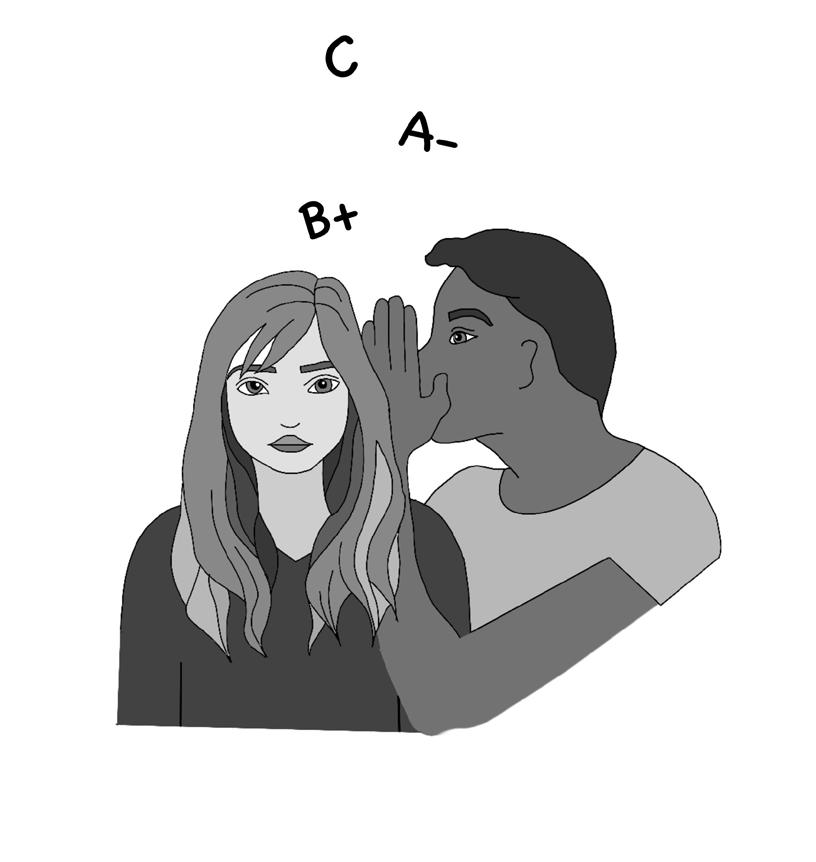
1 minute read
The Positives of Sharing Grades: A Reflection on Adults’ Expectations
by ANNIE STENT
“Keep your grade to yourself,” teachers often say when handing back tests or papers. However, students usually ignore this instruction, and the whispers continue as students share their grades with one another. Teachers and parents often see sharing grades as inherently bad and a way for students to compete with or shame others. In reality, sharing grades helps students understand where their score matches up and is not the cause of Menlo’s competitive environment. Plus, avoiding comparison, especially in high school, is not incredibly realistic in the first place.
Advertisement
It’s no secret that Menlo is a competitive school. The school profile that Menlo produces each year includes stunning matriculation data and features some of the top universities in the country. Those colleges have low acceptance rates and thus, limited spots, so admissions are competitive.
Regardless of college admissions, Menlo’s course loads are hard and workloads are heavy. The rigor promotes an expectation that students can deal with it. The level of success in Silicon Valley also lends to this. All in all, expectations are high.
Competition and high expectations do not need to be a bad thing: competition pushes people to be better. Feeling the need to stack up amongst peers and to be the best encourages hard work and highquality academic performance that may not be as prevalent without the competition.
Often, the blame for Menlo’s competitive environment is attributed to grade comparison. However, students aren’t competitive with each other because they compare themselves to one another; students compare themselves because they are competitive. Preventing students from sharing grades will not save the school from that competition. Additionally, if Menlo’s competitive nature makes students better, then the result of this competition shouldn’t be perceived as negative either.
In order for the negative connotation around grade comparison to be removed, we need to understand where the comparison itself comes from. Students share grades in order to understand where they stand among their peers as well as how they are doing in the course in general. Without comparison, it is difficult to comprehend what a grade means and therefore which steps to take to improve. If very few students struggled on a test but you did, then maybe you could benefit from a meeting with your teacher. If your score was one of the higher, then you may not have to spend extra time improving since, comparatively, you did very well.
Sharing grades does not need to be encouraged by adults, but there needs to be an understanding that students sharing them can provide benefits. It is unrealistic to expect that grades are kept completely secret; instead of requesting or expecting that they are and being upset when they aren’t, adults should recognize the benefits of sharing grades.









